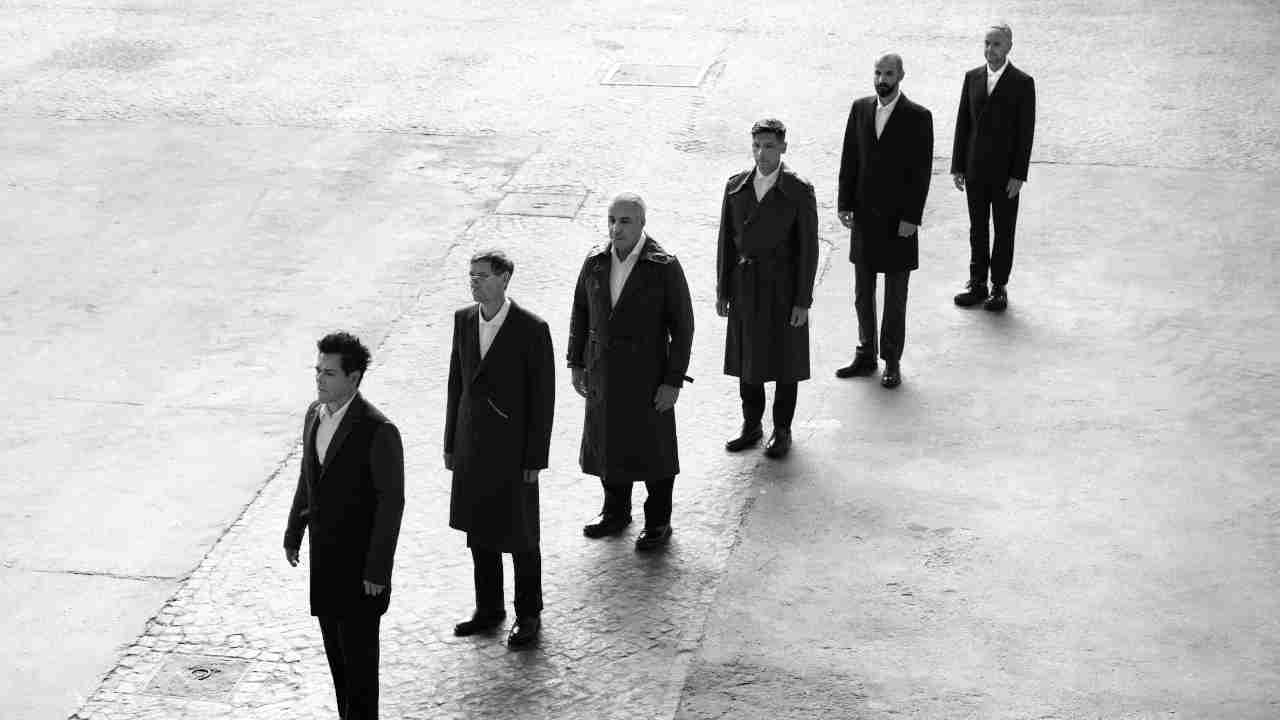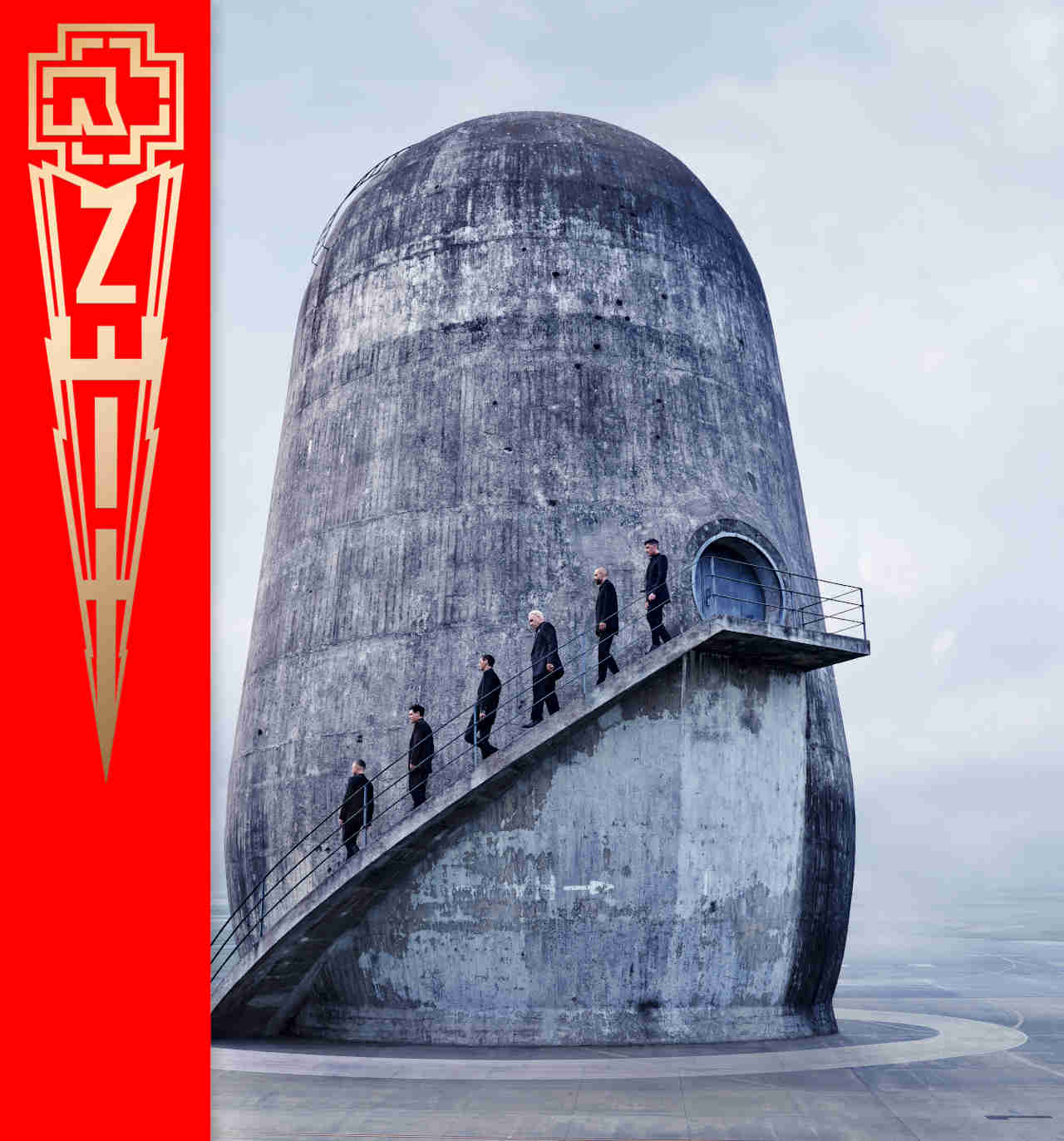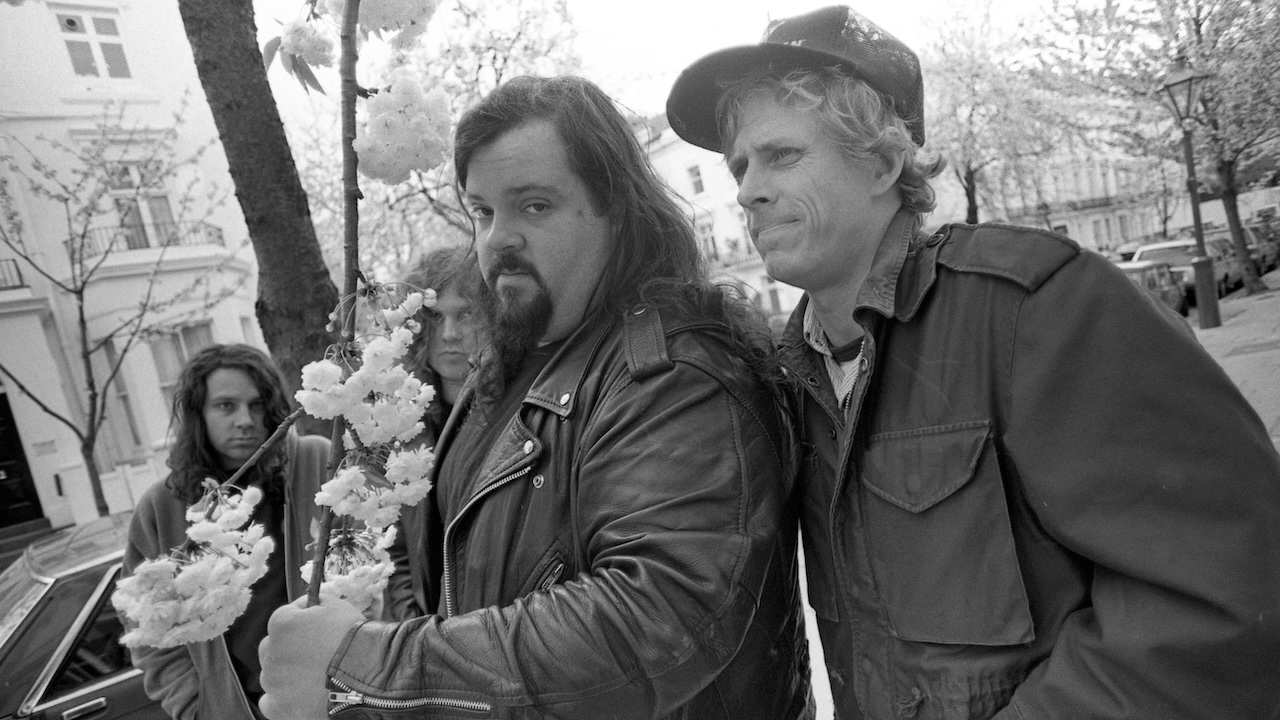We asked an Oxford Professor what Rammstein's new album Zeit is all about, and learned a lot
The ultimate track-by-track breakdown of Rammstein’s Zeit album, by Oxford Professor of Modern German Literature Karen Leeder

Rammstein remain one of metal's most inscrutable bands. While the Berliners are not hidden behind hoods nor masks, their eighth album Zeit nonetheless arrives to a frenzy of scrutiny as fans try to unpick every last detail behind each song - understandable, given just how much symbolism and weight fed into both the lyrics and the striking music video for the album's title track.
We doubt Till and co. will be revealing every subtle nuance on their powerful new release any time soon, so, with this in mind, we instead turned to Karen Leeder, Professor of Modern German Literature at Oxford University, to help us decipher the incredible detail that has gone into each song. And we learned a lot...

1. Armee Der Tristen (‘Army of the Dreary’)
"This is a rallying cry for the forlorn and abandoned. Listeners are exhorted to ‘fall in’ with the ranks of the ‘Party of the hopeless’. It cites the Communist Party Worker’s United Front Song, written by Bertolt Brecht, and referenced on the 2001 album Mutter too. But this alliance is existential: for the ‘depressive, saddened, smashed… pessimistic diabolic.’
The union will be founded on ‘faded roses’ drawn from the pathological underside of Romanticism. There is word play: ‘marching in Trist’ for the more normal ‘in Tritt’ (marching in step) before the banner-waving chorus ‘Komm mit’ invites the listener to be part of Lindemann’s night-army but also to join in the adventure of the album: ‘We’re closing our ranks / marching in step against happiness.’"
2. Zeit (‘Time’)
"The second track is a ‘memento mori’ riffing on a sixteenth-century German preoccupation with transience. Comfort is sought in the ‘perfect moment’, in a lover’s arms or a life well lived. The chorus offers the heartfelt injunction ‘Time, please stand still, stand still!’. That this is more complicated is suggested by ‘we keep on dying until we live’ – a direct inversion of the line from Dalai Lama on Reise Reise (2004) ‘Wir müssen leben bis wir sterben’ – which touches on the Freudian death-drive but also gives rise to the images of time reversal in the single’s brilliantly unsettling video.
Is this a lockdown song as philosopher Slavoj Zizek has suggested? Maybe, but the comment that we are always striving (‘streben’) and the call for time to stay: ‘Verweile doch’ come straight from Goethe’s Faust, where the striving everyman enters a wager with Mephistopheles to never be satisfied with anything the devil can offer him – on pain of his soul."
3. Schwarz (‘Black’)
"Schwarz starts with a reminisce of a famous nineteenth-century children’s evening prayer. But here, as the song says, ‘no prayer and no candle’ will oblige. The speaker is exiled from all light and salvation, glorying in the ‘sun’s death’ and drinking the dark ‘in deep drafts’. The night is a place of desire, figured here as a perverse mother: holding ‘many to her breast/Drinkers, whores and conspirators.’ If this track again recalls Faust (the soul straying with Goethe’s word ‘irren’), or twentieth century poet Gottfried Benn’s atavistic fantasies, it ends with the command ‘drink the black’ to join the confederacy of night."
Sign up below to get the latest from Metal Hammer, plus exclusive special offers, direct to your inbox!
4. Giftig (‘Poisonous’)
"Track four begins with edgy Eastern synth sound and a needling chorus (‘You are poisonous, ah so poisonous’). The speaker has been stung, bitten, it transpires, as he slept. The guilty creature lurks camouflaged close by. The vocabulary is deliberately archaic and conjures primal fears. With the sharp teeth and the victim’s paralysis, we are reminded of the High Gothic of the vampire and especially, in the year of its 100th anniversary, classic German film Nosferatu.
But, it turns out, the victim is willing. As the poison courses through his veins there is already white light on the horizon, and he is pleased there is no antidote. The erotic undertones appear in the last line: ‘The tongue sits so deep.’"
5. Zick Zack
"Zick Zack (an onomatopoeic phrase suggesting ‘snip snip and look sharp’) shifts gear to a more satirical contemporary mood. This is a grotesque hymn to augmented contemporary beauty ideals – but also everything that can be unceremoniously cut away and dumped as the high camp video suggests (‘Belly fat into the organic waste bin / Now the penis sees the sun again’).
Beneath the irony is a sense of mortality: ‘zick zack’ modulating to the ticking of a clock: ‘Tick tack you are old / your time is running out’. In the warning that beauty involves suffering there is hidden reference to D.A.F, the 80’s German electropunk outfit. And in the ‘needle thread scissors light’ line, we hear an echo of a common warning to children against things that can be dangerous and inevitably bring pain."
6. OK
"OK is short for ‘Ohne Kondom’ – without a condom. This is an up-tempo romp filled with word play and sexual innuendo (‘You have me in your hand’, ‘There are many holes to plug’) along with a repeated demand to be treated badly. Difficult to decode completely but certainly hints of sadomasochism and anal sex."
7. Meine Tränen (‘My Tears’)
"In My Tears, Rammstein fans will recognise another metaphorical matricide. This one sets the scene with a mother and her son, now a grown man, still living together in a claustrophobic relationship in a house that is too small. They are alone and silent.
But this is also a brutalising relationship; the mother figure strikes the son’s face and demands that he does not cry. The high pathos suggests that this is meant to be a sympathetic portrayal of masculinity (‘you should be ashamed / never show your tears’). But it does not disguise familiar undercurrents of Freudianism (son and father have been brutalised by the grinning mother)."
8. Angst (‘Fear’)
"The starting point is the family again, the father threatening the naughty child with the ‘black man’, or bogey man. But we soon see countries and peoples arming themselves against what they don’t understand and thus fear. A powerful chorus challenges idle scapegoating: ‘Who is afraid of the bogey man?’.
The song has its roots in an eighteenth-century German playground game, Black Man, a game bound up in folklore and plague history, and there are more hints of Goethe’s famous ‘Erlkönig’ (‘King of the Elves’) poem, in which a goblin comes to steal a child as the incarnation of fear. But with the householders locking themselves away, we certainly here warnings about COVID and Fortress Europe."

9. Dicke Titten (‘Big Tits’)
"After the high drama of Angst the next track come arrives with a whimsical introduction, rather like an oompah band. Girls don’t need to be rich or smart, the message goes, they just need big tits. The image of the ageing man losing hope and hair and fantasising about massive mammaries is rendered with tongue in cheek pathos. But the oddity of this song is the way the jolly seaside smut sits alongside excursions into (Rammstein favourite) Wagner or Gottfried Benn and self-consciously ironic rhymes."
10. Lügen (‘Lies’)
"Lügen opens with a melodic vision of bliss: lasting love and many children bathed in sunlight. The I of the song will be faithful, never swear, will write poems, cook fat-free and visit granny. By now this has the saccharine quality of an advert and it does not take long for the guitar to come in with the accusation: ‘Lies, all lies’.
Everything is sham, the I is even lying to himself. No one believes it all, not even him. The song speaks of an anguished Hofmannesque ‘tornness’ and the sense that life is a banal illusion. There is, though, again the threat of time running out, that something is coming that will bring the truth to light."
11. Adieu
"What comes in the final track that says its farewells and teases multiple meanings that will have fans scratching their heads. Death is hailed is the only thing that will last forever. The body is doomed to decay. Set against this is a grandiose gesture from the barricades of time: ‘a last song, a last kiss’ (echoing 80’s punk band Die Toten Hosen?).
The phrase ‘Jeder stirbt für sich allein’ (‘Everyone dies alone’) is a watchword but also a novel of anti-fascist resistance by the German author Hans Fallada. But in tune with the first song, Adieu offers a community in death: ‘We will stand by you’ and later ‘you will always be with us’. The closing line reminds us of ‘the beautiful moment’ of the track Time."
Zeit is released this Friday, April 29. And you can read more exclusive, in-depth insights into the album in the next issue of Metal Hammer magazine.

Professor of Modern German Literature, Fellow of New College, Oxford, Karen Leeder started her academic life researching the samizdat poetry, art and music scene that existed in East Germany before the fall of the Berlin Wall. She has continued her interest in the GDR and has published widely on modern German culture, especially of the post-1945 and contemporary periods; her interests range from poetry and the poetic tradition to modernity, GDR literature; contemporary German culture, lateness, women’s writing, angels, spectres, translation, Rilke and Brecht.

